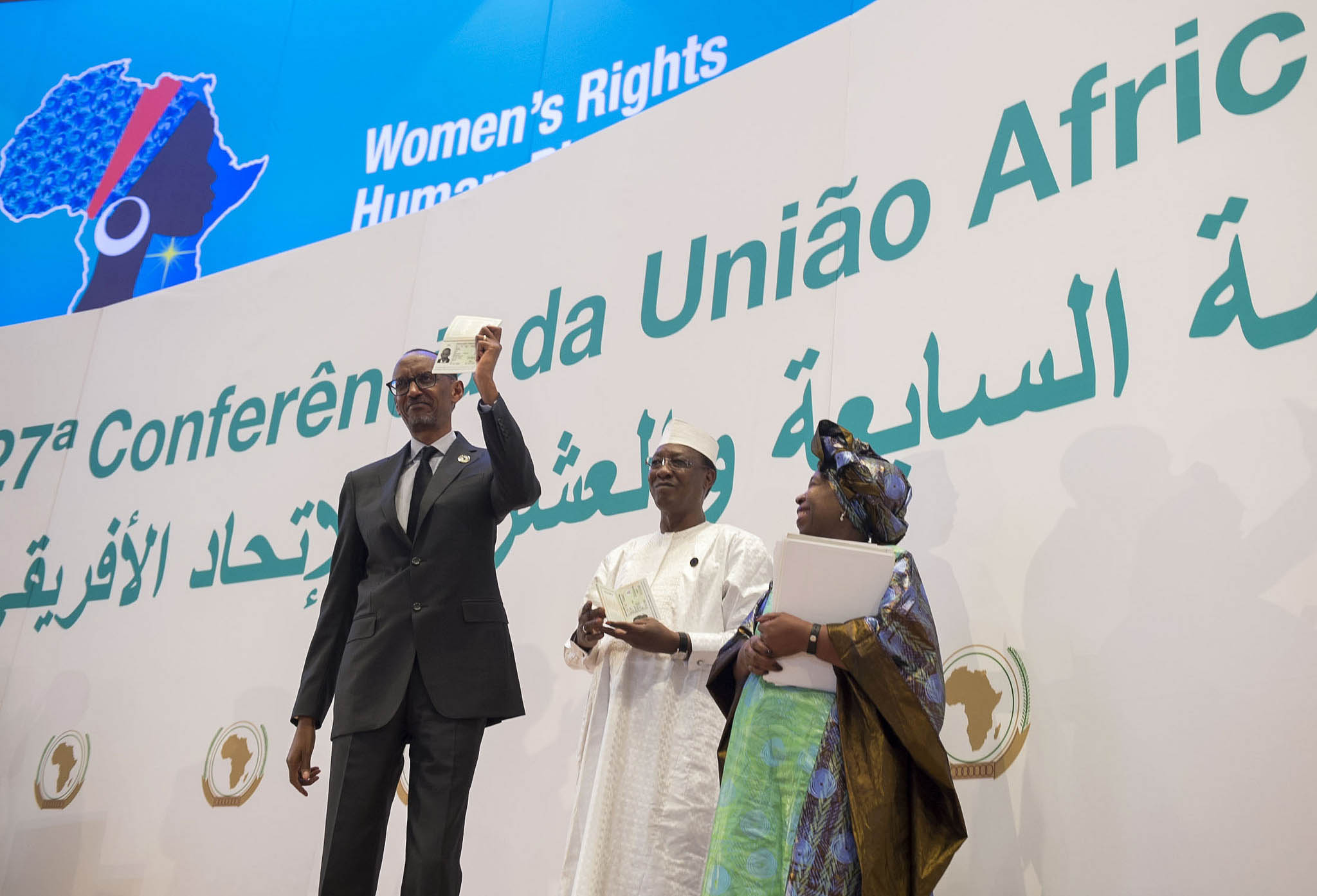NAIROBI (HAN) July 23.2016. Public Diplomacy & Regional Security News. By Christopher Kayumba. The 27th African Union (AU) Summit concluded on a positive note early this week in Kigali.
And as business connected and patriotic Rwandans celebrated hosting what the AU Commission chairperson Dr Nkosazana Dlamini-Zuma named as “the best summit we’ve had…”, a number of other officials called the launch of the African passport the best summit outcome.
Talking to journalists after the event, Rwanda’s Foreign Minister Louise Mushikowabo referred to the passport launch as the summit’s “highlight” while Lamin Manneh, the One-UN Resident Co-ordinator termed it “one of the [summit] high moments.”
The first two notables to receive the passport from Ms Dlamini-Zuma were President Idriss Deby of Chad who is the AU chairman and President Paul Kagame, the summit host.
Now, as a proud African, who strongly believes in the power of free movement of people, capital, labour, services and goods to transform the continent, the passport is a good starting point.
Of course, critics could argue that what leaders needed to do was not issuing a single passport to themselves but removing visa requirements for holders of a passport from any African country.
A single African passport is, symbolically powerful — both the consensual signal it sends that leaders not only recognise the importance of travel currently hampered, but also that, if we can pull off a single successful travel document, it’s possible to have an economically integrated and politically unified continent.
Yet, I’m reminded that what Africa has historically lacked, at least since gaining independence isn’t ideas but their implementation.
For instance, one of the two founding ideas of the Organisation of African Unity (OAU) —now AU —was to have a political and of course, economic union. More than 50 years later, the continent is neither economically nor politically united.
Apart from renaming of OAU to AU in 2001, the promised “new African dawn” gave us the “New Partnership for Africa’s Development” (NEPAD) with its “African Peer Review Mechanism” (APRM) as well as a commitment to democracy and human rights, among other ideals in the 2002 Durban Declaration.
Within this framework, African leaders also promised to “find African solutions to Africa’s problems. Part of the problem to solve was dictatorship and, within the APRM mechanism, African leaders committed to hold each other accountable based on certain democratic principles; key of which is rule of law and human rights.
As you read this, the APRM now largely exists in name and, in some cases serves to legitimise strongmen rule rather than rule of law.
When APRM was adopted, many nations had progressive constitutions, which, with the consent of the people, also had presidential term limits; today, many have since scraped term limits and entrenched imperial presidencies.
While proponents of removing term limits also claim the will of the people, the fact is, in almost all the cases, the law was adopted to serve a single person.
Similarly, the continent remains one of the areas where impunity reigns supreme — despite an “African court of Justice” and opposition political parties are harassed, their leaders sometimes beaten, impoverished or imprisoned on trumped up charges.
And that’s partly why a number of countries now are in crises and many that are deemed “democratic” today, are candidates for future collapse due to misrule, injustice and impunity.
Thus, while AU is involved in managing certain conflicts with peace keeping missions in a number of trouble spots like in Somalia, it’s difficult to say the continent has found solutions to its problems.
This is partly because continental leaders have remained indifferent to the continent’s original sin — solving the political rather than developmental equation.
For example Burundi’s current crisis was brought about by President Pierre Nkurunziza’s refusal to stick to constitutional rule, the continent’s leaders are unwilling to tell him so and to bring him to book as per the Durban Declaration.
Until leaders recognise that the political realm guide all other realms of society and, in each country leaders consensually settle the political problem without excluding those they disagree or treating them as enemies of the state, the continent will continue to pen nice ideas that remain only on paper.
Christopher Kayumba, PhD. Senior Lecturer, School of Journalism and Communication, UR; Lead consultant, MGC Consult International Ltd. E-mail: ckayumba@yahoo.com; twitter account: @Ckayumba Website:www.mgcconsult.com


Leave a Reply